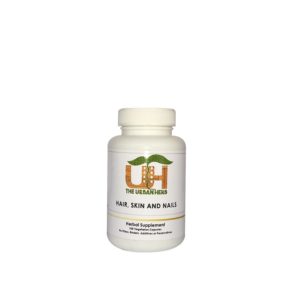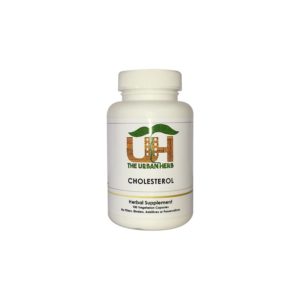Description
B-VITAMIN COMPLEX FORMULA
B-Vitamin Complex is a plant based supplement containing herbs naturally rich in B vitamins. It will not only increase your mental and physical energy but it will support your metabolism and immune system. It promotes your blood and heart to be as healthy as they can be. And it will enhance a healthy response to stress so that you always feel your best. B-Vitamin Complex helps to maintain the overall health of the body, but is especially beneficial for the nerves, liver eyes and brain. Preventing depression and anxiety are additional benefits. Water soluble are generally not stored in the body, so it is important to get the necessary amount of them each day.
B vitamins are a class of water-soluble vitamins that play important roles in cell metabolism. Though these vitamins share similar names, they are chemically distinct compounds that often coexist in the same foods. In general, dietary supplements containing all eight are referred to as a vitamin B complex. Individual B vitamin supplements are referred to by the specific number or name of each vitamin: B1 = thiamine, B2 = riboflavin, B3 = niacin, etc. Some are better known by name than number: niacin, pantothenic acid, biotin and folate.
Each B vitamin is either a cofactor (generally a coenzyme) for key metabolic processes or is a precursor needed to make one.
B1 thiamine – A coenzyme in the catabolism of sugars and amino acids.
B2 riboflavin – precursor of cofactors called FAD and FMN, which are needed for flavoprotein enzyme reactions, including activation of other vitamins
B3 niacin – A precursor of coenzymes called NAD and NADP, which are needed in many metabolic processes.
B5 pantothenic acid – A precursor of coenzyme A and therefore needed to metabolize many molecules.
B6 pyridoxine – A coenzyme in many enzymatic reactions in metabolism.
B7 biotin – A coenzyme for carboxylase enzymes, needed for synthesis of fatty acids and in gluconeogenesis.
B9 folate – A precursor needed to make, repair, and methylate DNA. A cofactor in various reactions; especially important in aiding rapid cell division and growth, such as in infancy and pregnancy.
B12 cobalamins – A coenzyme involved in the metabolism of every cell of the human body, especially affecting DNA synthesis and regulation, but also fatty acid metabolism and amino acid metabolism.
Why It Works?
Plant based source for all of the B vitamins that 100 % absorbable and bioavailable, unlike synthetic vitamins.
Vitamin B1 (Thiamin)
Thiamin plays avery important role in the conversion of carbohydrates to energy, a reason why B vitamins have been referred to as the “energy B’s”.
Vitamin B2 (Riboflavin)
Riboflavin plays an important role in producing energy from carbohydrates and fat. It is also involved in the metabolism and activation of other nutrients such as vitamin B6, vitamin A and folate. It indirectly helps keep cells from being damaged by free radicals because of its role in regenerating the antioxidant glutathione.
Vitamin B3 (Niacin)
Niacin is involved in energy production and is important for both the synthesis and breakdown of fat. It plays an essential role in the manufacture of cholesterol and cholesterol based hormones, including estrogen, progesterone, testosterone and cortisol. Niacin helps with the formation of 7 -dehydrocholesterol, which is important for Vitamin D production in the skin when exposed to sunlight.
Vitamin B5 (Pantothenic Acid)
Pantothenic acid is another B vitamin that plays a critical role in energy production, specifically the processing of carbohydrates, protein and fat for energy. It’s is also a component of coenzyme A, which is important for many cellular functions such as the manufacturing of red blood cells.
Vitamin B6 (Pyridoxine)
Pyridoxine plays a very important role in the formation of proteins used in the body for structural and functional purposes. It is essential for the synthesis of serotonin and dopamine (brain neurochemicals), histamine (important in immune system response), heme (a major component of red blood cells) and taurine (a non essential amino acid).
Vitamin B7 (Biotin, formally known as Vitamin H)
Biotin is involved in the production of energy from carbohydrates, some proteins and in the synthesis of fatty acids. When more calories are consumed than the body needs, excess carbohydrates are stored as glycogen in the liver and muscles or can be transformed into body fat. Biotin is involved in both of these processes when it helps liberate glucose from glycogen and plays a role in the formation of fatty acids. Biotin is also important for the breakdown of the amino acids leucine, isoleucine, threonine and methionine when they are needed to generate energy.
Vitamin B9 (Folate or Folic Acid)
Folate is the form of this vitamin found in whole foods, while folic acid is the form found in supplements and fortified foods. Along with Vitamin B12, folate is critical for cell division. It is also useful for DNA replication and decreases blood levels of homocysteine, a substance associated with inflammation.
Vitamin B12 (Cobalamin)
Vitamin B12 is involved with the synthesis of DNA, functioning of the nervous system and helping to keep homocysteine level low in the bloodstream. It also is valuable in the formation of red blood cells and energy production. Vitamin B12 is created by species of bacteria. It can be also made by bacteria in the large intestine, but unfortunately it is absorbed in the last part of the small intestine (the distal ileum) prior to reaching the large intestine. This vitamin can be difficult to acquire which is why supplements are recommended.
Choline
Choline is generally recognized as a member of the B-vitamin family. It is manufactured by the body from the amino acids methionine and serene. It’s used to make acetylcholine, a neurotransmitter responsible for a variety of functions in the brain and body. Choline is also involved in memory and is used to make phosphatidylcholine and sphingomyelin, important parts of cell membranes
FUNCTION: B-Vitamin Complex is a water soluble vitamin formulated with herbs that are rich in each of the B Vitamins. Each B-Vitamin assists different bodily functions. B1 and B2 are important for healthy functioning of the muscles, nerves and heart. B3 helps regulate the nerves and digestive systems. B5 and B12 are required for growth. B6 supports the immune system. B7 is involved in the production of hormones. And B9 helps cells make and maintain DNA.
INGREDIENTS: Blue Green Algae, Alfalfa, Spirulina, Dulse, Kelp, Watercress. Nettle, Chlorella, Irish Moss, Iceland Moss, Sheep Sorrell and Suma






Reviews
There are no reviews yet.